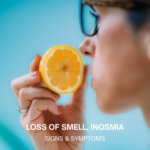Loss of Taste: Understanding the Causes, Effects, and Treatments
Taste is one of the essential senses that contribute significantly to our overall quality of life. The ability to enjoy food and drinks is a fundamental pleasure that many of us take for granted. However, for some, the loss of taste can be a distressing and life-altering experience. This condition, known as ageusia, can have various underlying causes, ranging from temporary issues to more chronic problems. In this article, we will explore the causes, effects, and possible treatments for the loss of taste.
Causes of Loss of Taste
There are several potential causes for the loss of taste, and identifying the underlying issue is crucial for effective treatment. Some common causes include:
-
Infections:
- Viral Infections: Respiratory infections, such as the common cold or influenza, can temporarily affect taste. The COVID-19 pandemic highlighted this, as many patients reported a loss of taste and smell as key symptoms.
- Bacterial Infections: Sinus infections and dental issues can also lead to a loss of taste. Bacteria can affect the taste buds or the nerves involved in taste perception.
-
Medications:
- Certain medications, such as antibiotics, antihistamines, and blood pressure drugs, can alter taste. Chemotherapy drugs are also known to affect taste, leading to changes in appetite and food preferences.
-
Medical Conditions:
- Neurological Disorders: Conditions like Parkinson’s disease, multiple sclerosis, and epilepsy can impact taste perception due to nerve damage.
- Nutritional Deficiencies: Deficiencies in zinc, vitamin B12, and other essential nutrients can lead to taste disturbances.
- Endocrine Disorders: Thyroid issues and diabetes can affect taste buds and nerve function.
-
Aging:
- As we age, our taste buds become less sensitive. This natural decline can lead to a reduced ability to taste, which can affect appetite and nutrition.
-
Lifestyle Factors:
- Smoking: Smoking can damage taste buds and reduce taste sensitivity. Long-term smokers often experience a dulling of taste.
- Poor Oral Hygiene: Dental issues and poor oral hygiene can lead to infections and inflammation that affect taste.
Effects of Loss of Taste
The loss of taste can have profound effects on an individual’s life. It is not just about missing the enjoyment of food; it can lead to several significant issues:
-
Nutritional Deficiencies:
- People who lose their sense of taste may lose interest in eating, leading to inadequate nutritional intake. This can result in weight loss, muscle wasting, and overall poor health.
-
Psychological Impact:
- The enjoyment of food is closely tied to our emotional well-being. A loss of taste can lead to feelings of depression and anxiety. Social activities, such as dining out or sharing meals with loved ones, may also become less enjoyable.
-
Safety Concerns:
- The sense of taste helps us detect spoiled or toxic foods. Without this ability, individuals may be at higher risk of food poisoning or consuming harmful substances.
-
Reduced Quality of Life:
- Overall, the loss of taste can lead to a significant decline in the quality of life. Everyday activities, such as eating and drinking, become less pleasurable and more of a chore.
Diagnosis and Treatment
Diagnosing the cause of taste loss involves a thorough medical history and examination. Here are some steps typically involved:
-
Medical History and Physical Examination:
- A doctor will review the patient’s medical history, including any recent illnesses, medications, and lifestyle factors. A physical examination, particularly of the oral cavity and nasal passages, is essential.
-
Taste Tests:
- Various taste tests may be conducted to evaluate the severity and type of taste loss. These tests might include using flavored solutions to determine which tastes are affected.
-
Imaging Studies:
- In some cases, imaging studies like MRI or CT scans may be necessary to check for neurological causes or structural abnormalities.
-
Blood Tests:
- Blood tests can help identify nutritional deficiencies or underlying medical conditions that might be contributing to taste loss.
Treatment Options
The treatment for loss of taste depends on the underlying cause. Some common approaches include:
-
Addressing Infections:
- Treating any underlying infections, whether viral, bacterial, or fungal, can help restore taste. This might involve antibiotics, antivirals, or antifungal medications.
-
Adjusting Medications:
- If medications are the culprit, doctors may adjust the dosage or prescribe alternative drugs that do not affect taste.
-
Nutritional Support:
- Addressing nutritional deficiencies with supplements or dietary changes can improve taste. Zinc and vitamin B12 supplements are often beneficial.
-
Lifestyle Changes:
- Encouraging patients to quit smoking and maintain good oral hygiene can help restore taste over time.
-
Managing Chronic Conditions:
- Proper management of chronic conditions like diabetes or thyroid disorders can improve taste perception.
-
Taste Training:
- Taste training exercises, such as using flavored solutions to stimulate the taste buds, can sometimes help in regaining taste.
Coping Strategies
While treatment is being sought, there are several coping strategies individuals can adopt to manage the loss of taste:
-
Experiment with Textures:
- Focus on the texture of food to make meals more enjoyable. Crunchy, creamy, or chewy foods can add variety to the eating experience.
-
Enhance Aromas:
- Since smell plays a significant role in taste, enhancing the aroma of foods with herbs and spices can make meals more appealing.
-
Maintain a Balanced Diet:
- Even if food doesn’t taste the same, maintaining a balanced diet is crucial for overall health. Incorporate a variety of foods to ensure nutritional needs are met.
-
Stay Hydrated:
- Drink plenty of water, as staying hydrated can help maintain oral health and improve taste perception.
Conclusion
The loss of taste can be a challenging condition to live with, affecting not only the enjoyment of food but also overall health and well-being. Understanding the potential causes, seeking appropriate treatment, and adopting coping strategies can help individuals manage this condition effectively. If you experience a sudden or persistent loss of taste, it’s essential to consult a healthcare professional to determine the underlying cause and receive appropriate care.





